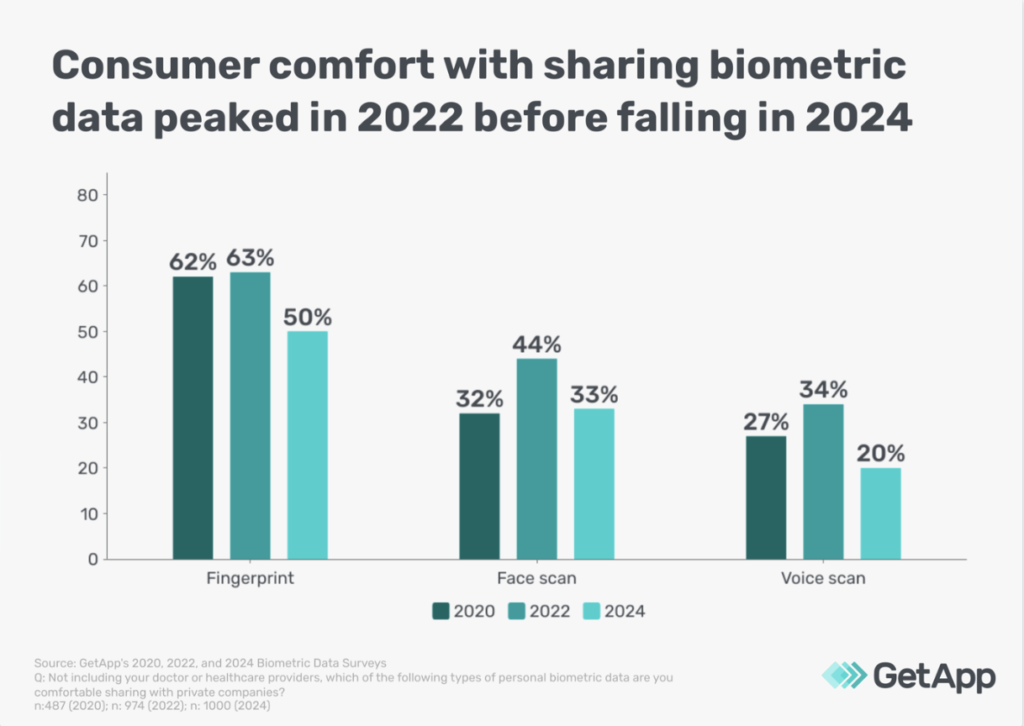High-profile breaches and privacy violations have put a major dent in the public’s trust in biometrics, an authoritative new survey has revealed.
The percentage of people who trust tech companies to safeguard their biometric data has ” plummeted”, falling from 28% in 2022 to 5% in 2024.
This drop in “consumer comfort” is primarily fuelled by security concerns around the misuse of data, identity theft, and privacy violations, GetApp’s 2024 Biometric Technologies Survey of 1,000 consumers found.
The current atmosphere of distrust stands in sharp contrast to the post-pandemic years, when biometric technologies soared in popularity in retail and a touchless method of identity confirmation.
Over the past two years, there has been a “significant reversal” in attitudes. Just 33% of people feel comfortable sharing face scans in 2024, compared to 44% in 2022.

The study also found that half (50%) of people are happy scanning fingerprints compared to 63% in 2022. When it comes to voice scans, just one in five (20%) want their dulcet tones recorded by tech giants, compared to 34% in 2022.
In total, 63% of consumers lack faith in the accuracy of biometric technology, compared to just 38% in 2022.
Why are consumers losing trust in AI and biometrics?
One specific “likely reason” is a surge in cases of facial recognition misidentification that have “disproportionately impacted people of colour and women”, with 82% of consumers saying it should be avoided it is proven to be biased.
The plunge in trust coincides with an explosion in the popularity of generative AI. The GetApp research found that 85% of consumers are concerned about sharing personal data with generative AI tools and just under half (49%) will not use these tools because they dp not trust them with their personal information.
Biometrics are currentlty facing regulatory scrutiny by government organizations. Six U.S. states have passed biometric laws and legislation is pending in a dozen others.
These laws impose serious financial liabilities on companies collecting biometric data. For example, Illinois’ Biometric Information Privacy Act (BIPA) includes a private right of action for victims which can lead to heavy fines. Other comprehensive privacy laws such as California’s CCPA/CPRA and Europe’s GDPR include biometrics as protected data.
“Businesses must take a deliberate approach in implementing biometric technology as it currently faces both public and regulatory scrutiny,” said Zach Capers, manager of ResearchLab and senior security analyst at GetApp. “To mitigate legal, reputational, and financial risks, ensure that biometric data is captured with consent and stored securely in compliance with privacy regulations.”
The survey asked consumers for their opinion on biometrics.
“I think with the introduction of AI, it would be scary to solely rely on biometric use,” one said.
“I think it is a slippery slope with all of the AI technology coming up,” another opined. “I’m very concerned about identity theft.”

